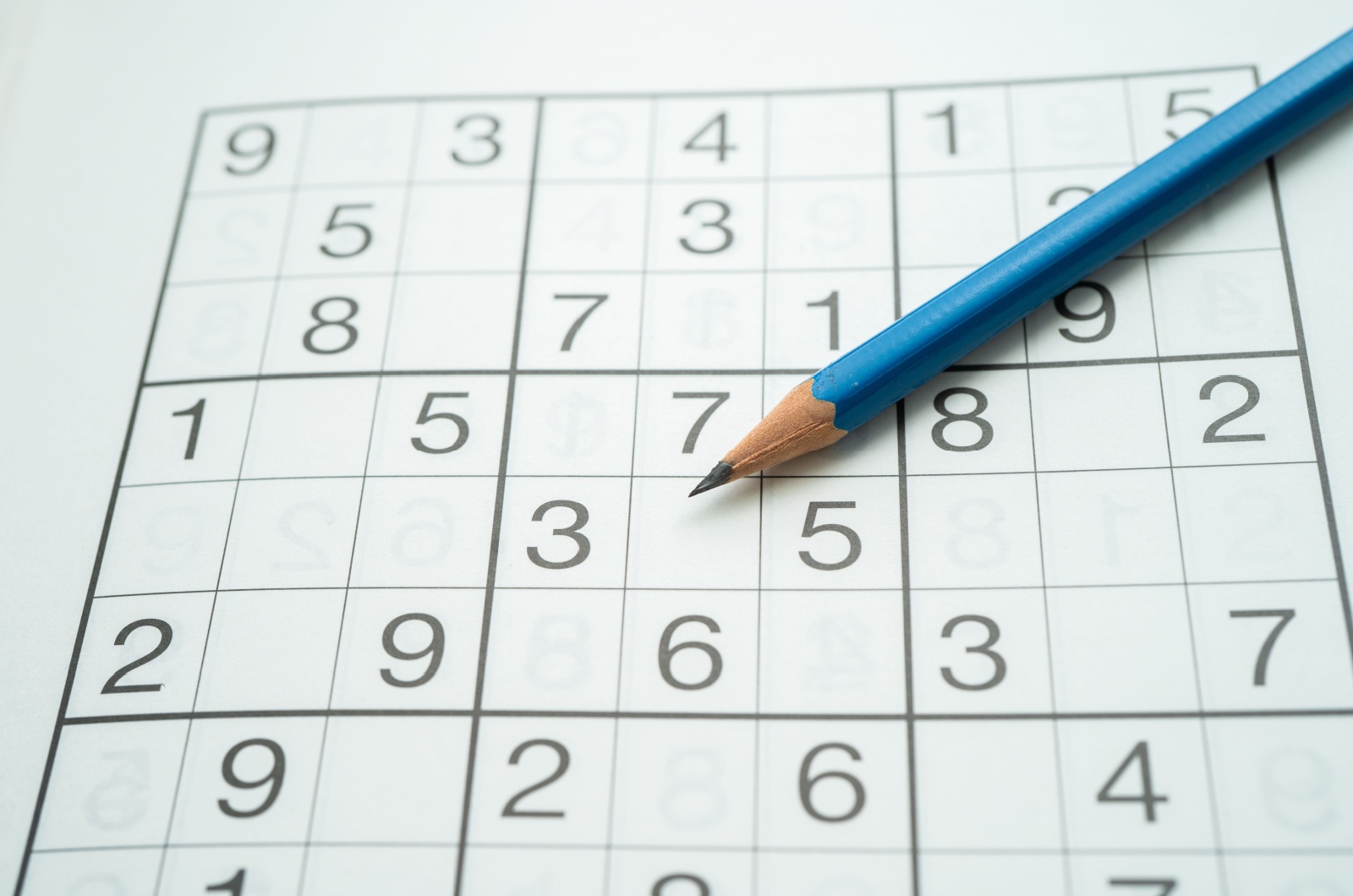Engaging in activities that challenge the brain isn’t just a pastime for older adults. Regular mental engagement can stimulate cognitive function and reduce the risk of cognitive decline and improve the quality of life in older adults.
7 engaging memory games for older adults include:
- Card matching
- Sudoku
- Word search puzzles
- Jigsaw puzzles
- Trivia
- Bingo
- Memory box
Memory Games & Their Benefits for Seniors
Memory games can help improve short-term memory, enhance problem-solving skills, and provide a sense of accomplishment. Depending on the game, they can also offer a great opportunity for social interaction.
By incorporating memory games into daily routines, caregivers and family members can provide loved ones with an enjoyable way to keep their minds active. Tailored games can suit a range of cognitive abilities, making them accessible and beneficial for all older adults.
- Card Matching Game
The classic card matching game is a timeless favorite that’s perfect for older adults. It involves laying out a set of cards face down and then flipping two cards at each turn to find matching pairs.
Card matching helps improve short-term memory and concentration. Played alone or with others makes it a versatile option for any setting.
The game can be adapted with different themes, such as animals, flowers, or family photos, to keep it interesting. Increase the number of cards or add a timed element for a more challenging version. This can add an extra layer of excitement and keep the mind engaged.
- Sudoku

Sudoku is a popular number puzzle game that requires logical thinking and pattern recognition. Players must fill a 9×9 grid with numbers so that each row, column, and 3×3 section contains all the numbers from 1 to 9.
Sudoku is excellent for improving problem-solving skills and mental agility. It can have various difficulty levels, making it suitable for older adults with different cognitive abilities.
Playing Sudoku can be a solitary activity, but it can also be a social one. Consider organizing a Sudoku club where older adults work together on puzzles, share strategies, or even race each other.
- Word Search Puzzles
Word search puzzles are a great way to keep the mind active while having fun. These puzzles involve finding hidden words within a grid of letters, and they come in various themes and difficulty levels.
Word search puzzles help improve pattern recognition and vocabulary. They are also a relaxing activity done at one’s own pace. To make these puzzles more personal, create custom word searches with words that have special meaning to a loved one, such as names of family members, favorite hobbies, or places they’ve visited.
- Jigsaw Puzzles
Jigsaw puzzles help exercise the brain while creating something beautiful. These puzzles require assembling pieces to form a complete picture and can range from simple designs to complex scenes.
Working on jigsaw puzzles enhances visual-spatial reasoning and problem-solving skills. It also provides a sense of accomplishment and can be a calming, meditative activity.
Choose puzzles with large, easy-to-handle pieces for older adults with dexterity issues. Consider puzzles with bright, high-contrast images to make the activity more vibrant.
- Trivia Games
Trivia games can boost memory and recollection. These games involve answering questions about various topics, ranging from history and geography to pop culture and sports.
Trivia games help retain and improve general knowledge, promoting cognitive flexibility. When played in groups or teams, trivia games also allow for engaging social interaction.
Create a personalized trivia game with questions relevant to a loved one’s life, highlighting their interests, hobbies, and stories. This adds a personal touch and makes the game more engaging and meaningful for older adults.
- Bingo
Bingo is a classic game loved by people of all ages, including older adults. It involves matching numbers called out by a host on a card until someone completes a row or pattern.
Bingo helps improve concentration and number recognition. It’s also a social game that fosters camaraderie and excitement. To make Bingo more interesting, use themed cards or incorporate small prizes for the winners. This adds an extra layer of motivation and fun to the game.
- Memory Box
Memory boxes can contain items and trinkets to enhance long-term memory and encourage storytelling. Fill the box with prompts, such as photos, music, or objects, to spark memories and discussions about the past.
Opening the box on a regular basis can help improve recollection and verbal expression. It also encourages older adults to share their stories and experiences, which can be incredibly fulfilling.
Create your own memory box by gathering items that have personal significance to a loved one. Revisit the box once in a while to help stimulate your loved one’s long-term memory.
Engaged Senior Living
Memory games are a powerful way to keep the mind sharp and improve overall well-being for older adults. These games offer numerous benefits, from enhancing cognitive abilities to providing social interaction and a sense of accomplishment.
Senior living and memory care communities can also play a vital role in maintaining cognitive health. Contact Kingston Residence of Santa Fe to learn more about how we can support your loved one with personalized care and engaging activities.






